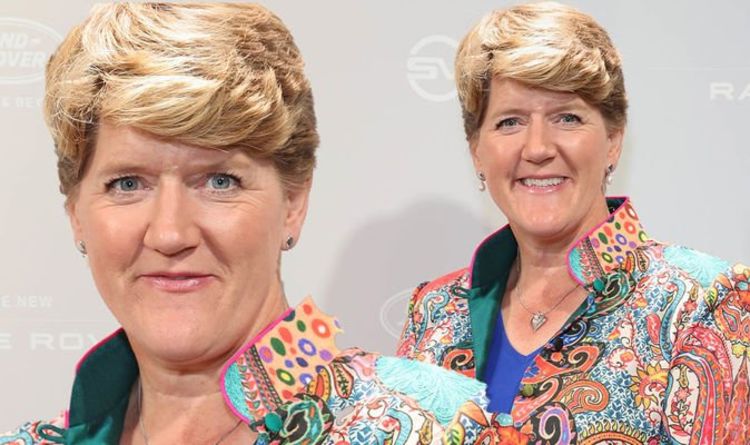Countdown: Clare Balding pays tribute to Emma Raducanu
We use your sign-up to provide content in ways you’ve consented to and to improve our understanding of you. This may include adverts from us and 3rd parties based on our understanding. You can unsubscribe at any time. More info
Having reported on seven Olympics Games for the BBC across both television and radio, as well as four Paralympic Games and Winter Olympics, there is no one better suited for the job than Balding. Yet when the 51-year-old appeared on an episode of Mel Giedroyc: Unforgivable, she explained that her father never believed that she would make it to the top in sports media. And perhaps even more worrying, after more than 25 years in the business the star struggles to hear what a lot of guests are saying.
Speaking on the Dave panel show back in 2020, Balding said: “I really need to get my ears done. I’m at about 10 percent and I guess the rest.
“My wife keeps saying to me, ‘Stop shouting!’ because I’m clearly over-projecting because I can’t hear myself.”
Sympathising with the star, host Mel added: “I hear about 60 percent.”
Despite playing the risky game of guessing what people are saying, Balding has become one of the best known sports presenters, being awarded an OBE for services to broadcasting and journalism back in 2013.

“I was very angry at my parents for their lack of acknowledgements for women’s achievements,” she explained in relation to her father’s doubts about her career choice.
“And that made me really determined to do the things that maybe they thought women couldn’t do.
“I remember when I first presented Grandstand on the BBC my father being absolutely flabbergasted. He didn’t realise that was something any women could do, let alone me.
“Other people might have been a little more open minded, but you know. So that was a big drive to do something.
“Not to make him proud – although I’m sure that was there too – but to be different from anyone else and nobody else in the family worked in the media.”
The National Institute on Ageing explains that hearing loss is a common problem caused by a variety of factors.
Reasons such as noise, ageing, disease and heredity can all play a part in people finding it difficult to have conversations with friends, family and work colleagues.
Hearing loss related to ageing is known professionally as presbycusis, and will gradually occur to most people as they grow older.

The National Institute on Deafness and Other Communication Disorders says that age-related hearing loss most often occurs in both ears, affecting them equally.
Due to the loss being gradual, if you have age-related hearing loss you may not realise that you’ve lost some of your ability to hear.
The most common cause of age-related hearing loss is changes in the inner ear, but it can also result from changes in the middle ear or from complex changes along the nerve pathways from the ear to the brain.
In order to tell if you are suffering from age-related hearing loss, the most common symptoms to spot include:
- Speech of others sounds muffled or slurred
- High-pitched sounds, such as “s” or “th” are hard to distinguish
- Conversations are difficult to understand, particularly when there is background noise
- Men’s voices are easier to hear than women’s
- Some sounds seem overly loud and annoying
- Tinnitus (ringing in the ears) may occur in one or both ears.

Due to some of the symptoms listed above also being common with other medical conditions, it is important to seek the opinion of your GP in order to assess whether you are suffering from age-related hearing loss or not.
The NHS lists some of the other possible causes for hearing loss, and the symptoms that individuals may be experiencing:
- Gradual hearing loss in both ears – ageing or damage from loud noise over many years
- Difficulty hearing in one ear, earache, a feeling of pressure in your ear, discharge coming out of the ear – ear infection
- Difficulty hearing in one ear, itchiness, feeling like your ear is blocked- earwax build-up
- Sudden hearing loss after an ear infection, a very loud noise or a change in air pressure (for example, from flying) – perforated eardrum
- Sudden hearing loss along with dizziness, a spinning sensation (vertigo) or ringing in your ears (tinnitus) – labyrinthitis or Ménière’s disease.
Treatment for hearing loss depends on what is causing it. With conditions such as an ear infection or earwax build-up, medications or ear drops will usually be used to restore hearing.
For individuals with permanent hearing loss, a specialist will often recommend hearing aids. These will not make your hearing perfect, but they make sounds louder and clearer. Some people may need a hearing implant. These are devices that are attached to your skull or placed deep inside your ear.
Source: Read Full Article






